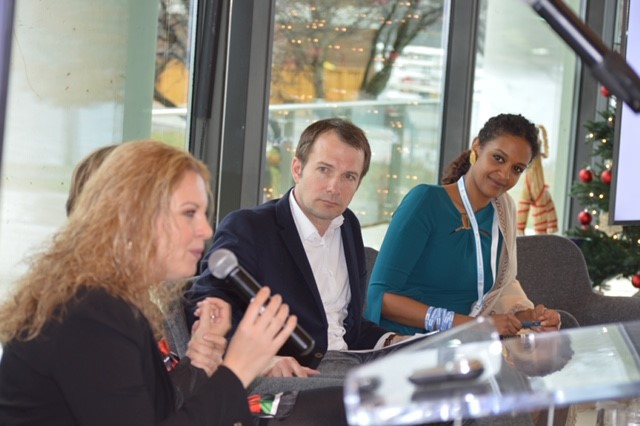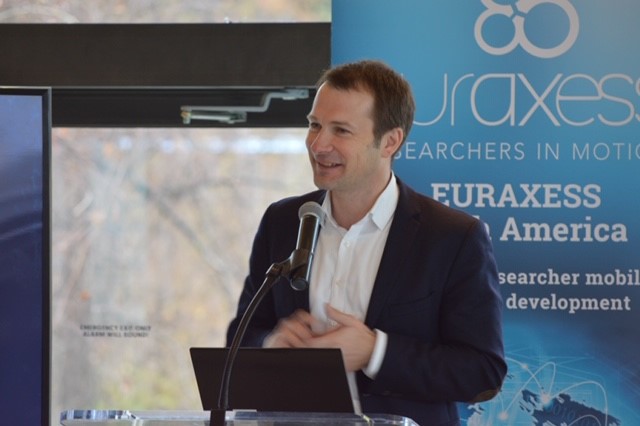DFG at the 5th Annual Meeting of European Scientific Diasporas in North America
(01/31/20) On 10 December 2019, at the Swedish embassy in Washington, DC, the 5th Annual Meeting of European Scientific Diasporas in North America organised by EURAXESS brought together numerous representatives of research institutions and embassies to discuss initiatives to reinforce transatlantic cooperation as part of the theme 'Europe to Humanity.’ Following last year's European Research Day, which mostly saw the presentation of funding initiatives in the humanities and social sciences, this year the focus was on open access in the European Research Area (ERA).

Dr. Rainer Gruhlich (Director, DFG Office North America) and other panel members present funding opportunities in Europe
© EURAXESS North America
Jean-Claude Burgelman, Head of Open Science and Data Policies in the EC’s Directorate-General for Research & Innovation, spoke about the latest developments in this area. Viktoria Bodnarova (Regional Representative, EURAXESS North America), Agnieszka Weinar (Marie Curie Alumni Association, North America Chair), Dimah Mahmoud (Program Manager, EURAXESS North America) and Dr. Rainer Gruhlich (Director, DFG Office North America) presented European funding opportunities designed, among other things, to promote transatlantic research cooperation.

Dr. Rainer Gruhlich presents the DFG and its international strategy
© EURAXESS North America
In his presentation, Dr. Gruhlich focused on the DFG's international strategy, in which international cooperation is seen as integral to science: "We support international cooperation because scientific excellence does not know any borders. The DFG promotes international cooperation because science is a global enterprise: knowledge transcends national boundaries, certain topics are best researched within the framework of international collaborative projects, and last but not least it is essential to build capacities and engage with the 'global south,’" Gruhlich said. The DFG, he added, rises to this challenge by promoting "Internationalization@home," helping the German research landscape to internationalise through its funding programmes, and facilitating collaboration between the best researchers worldwide. Finally, he described the key areas of his office's mission: advocacy, funding and outreach.
To round off the day, which inspired attendees to build enhanced European and transatlantic cooperation, the launch of the Swedish Trans-Atlantic Researcher & Scholars Network (STARS Network) was announced. Like the German Academic International Network (GAIN), this new venture is intended to network Swedish researchers in North America.